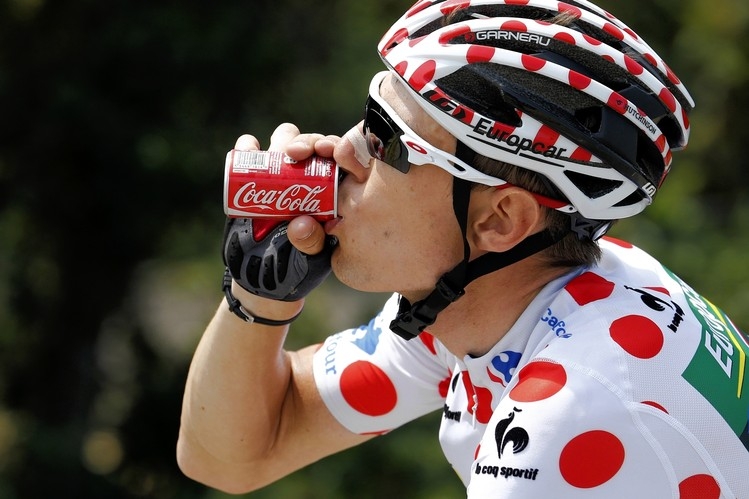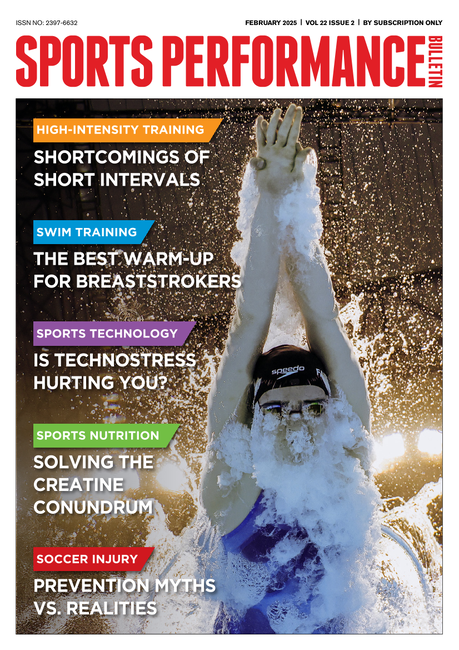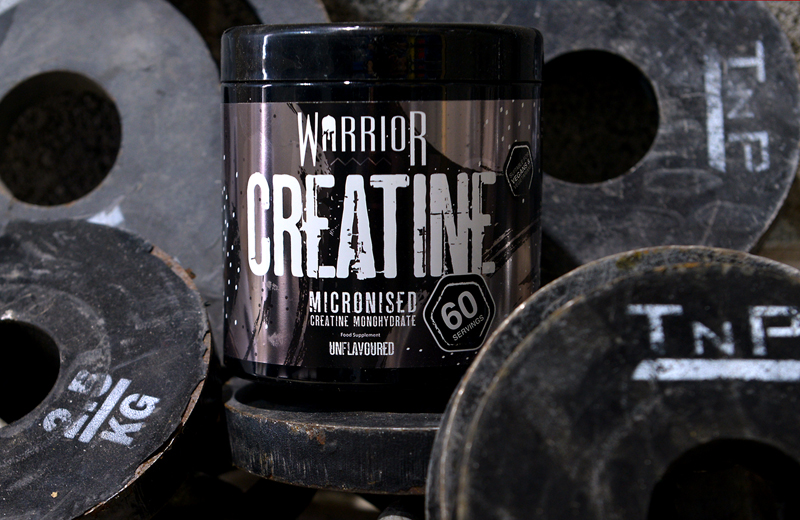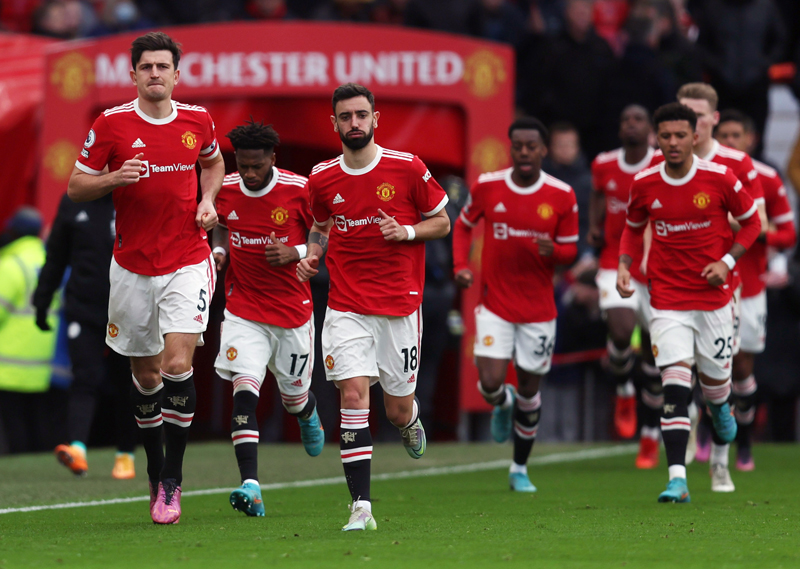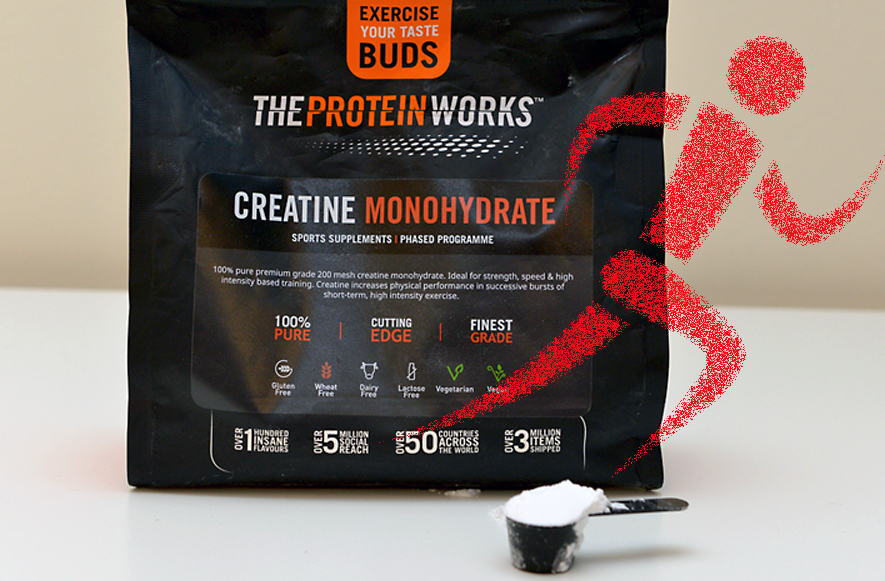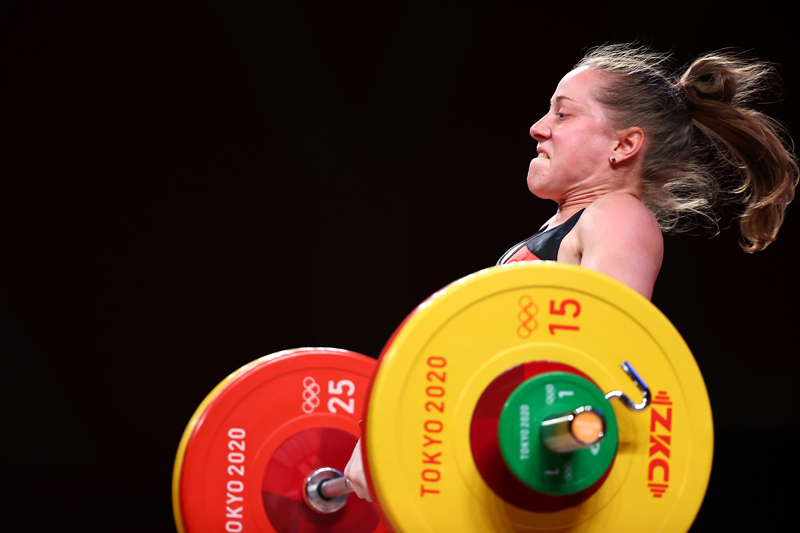Caffeine is a popular supplement with endurance athletes for a very good reason: numerous scientific studies have demonstrated that it can significantly enhance performance by extending endurance and reducing fatigue (1,2), probably by blocking the passage of ‘fatigue signals’ to the brain (3,4). More recent studies have also shown that caffeine supplementation can benefit athletes whose sports involve shorter, more intense efforts – e.g. football, rugby and other team sports, middle and sprint distance running/rowing/cycling/ swimming etc. (5,6).
Given that solid research supporting caffeine’s use dates back to the 1990s, you might conclude that sports scientists moved on from caffeine a long time ago in order to look at more exotic performance-enhancing supplements. But you’d be wrong because research into caffeine has continued apace, and over the last three years, more findings have emerged about how to make the most of it. In this article, we’ll take a look at what this new research says and discuss the implications for those who use caffeine.
Tolerance and response
One of the key questions that caffeine users have asked over the years is whether the effects of caffeine supplementation before training or racing are reduced in habitual caffeine users (e.g. regular tea, coffee and cola drinkers) because of ‘caffeine tolerance’. In other words, are the benefits of taking caffeine before an event less apparent when you take caffeine in drinks every day anyway?In 2011, Australian scientists sought to answer this question by studying the impact of a controlled four-day caffeine withdrawal period on the subsequent effect of an acute caffeine dose on cycling performance in twelve well-trained cyclists(7). In the study, the subjects abstained from all dietary caffeine sources for four days before a time trial but ingested capsules twice daily containing either an inert placebo or caffeine (1.5mg per kilo of bodyweight per day). On the fifth day, capsules containing either placebo or caffeine (3.0mg per kilo of bodyweight per day) were ingested 90 minutes before completing a time trial of one hour of cycling at 75% of peak sustainable power output. This protocol therefore compared four conditions:
1. No caffeine ingested prior to day 5 and no caffeine pre-time trial;
2. No caffeine ingested prior to day 5 but caffeine taken pre-time trial;
3. Caffeine ingested prior to day 5 but no caffeine taken pre-time trial;
4. Caffeine ingested prior to day 5 and caffeine taken pre-time trial.
The key finding was that performance was significantly improved after acute caffeine ingestion following a withdrawal period (condition 2 above) and following the non-withdrawal period (condition 4) – i.e. regardless of prior caffeine use. Moreover, the margin of improvement was around 3% in both these conditions. Some researchers have speculated that habitual use of caffeine could reduce its impact, implying that you might achieve better results by abstaining from caffeine for a few days before using it for sport. However, this study at least shows that this is not the case – the benefits of caffeine are clearly and equally apparent regardless of whether you’re a habitual caffeine user or not (good news for tea and coffee drinkers).
Another caffeine question that has perplexed scientists is why when caffeine works well for many people (and thus shows a significant group effect overall in scientific tests) there are certain individuals for whom caffeine has very little effect – so-called ‘non-responders’. Some researchers believe that this occurs due to natural genetic variations between responders and non-responders and a US study last year seems to back this up.
In the study, US researchers looked at a gene called cytochrome P450 (CYP1A2) that is known to influence caffeine metabolism in the body and tried to see if a variation in this gene influences the ergogenic effects of caffeine supplementation(8). Thirty-five trained male cyclists participated in two computer-simulated 40-kilometre time trials on a cycle ergometer. An hour before each test, the cyclists took either 6mg of caffeine per kilo of bodyweight or an inert placebo. These were administered in double-blind fashion – i.e. so that neither the researchers nor the cyclists knew who was taking what. Also, DNA samples were tested to see which kind of two genetic variations each cyclist had in their cytochrome P450 gene. The cyclists were then classified as having either the ‘AA homozygote’ variation or the ‘C allele carrier’ variation.
Taken as a group overall, caffeine supplementation reduced the 40km time-trial time – as you might expect from all the previous studies. However, what was interesting was that the cyclists carrying the AA homozygote variation on the cytochrome P450 gene reduced their time by an average of 4.9% – a very large improvement. Meanwhile, the cyclists carrying the C allele variation only reduced their times by a meagre 1.8%, indicating that they had not responded to caffeine supplementation nearly as well.
These findings support the notion that whether or not you respond well to caffeine is down to your genetic make-up – unfortunately something that you can’t change. However, if you’re a caffeine ‘non-responder’, you shouldn’t worry – it’s not something that you’re doing wrong. And since the dose of 6mgs per kilo is quite a high dose, it also suggests that you probably won’t benefit from an increased dose either. But don’t be disheartened because some researchers also believe that poor caffeine responders may not respond as well to caffeine simply because they have a central nervous system that is very efficient and ‘fired up’ in its natural state!
When and how much?
When to take caffeine and how much to take for the best results is something that has been extensively researched over the years. In short, the consensus of scientific opinion about the likely caffeine dose required to produce a performance effect can be summarised as follows: for events less than 30 minutes, 6mgs/kg, for events of 30-60 minutes, 3-6mgs/kg, and for events over one hour, 3mgs/kg or less. Meanwhile, most studies have suggested taking caffeine around 30-90 minutes before exercise. However, recent research suggests that we may need to refine these recommendations.In 2011, an Australian study provided evidence that when it comes to caffeine dose, unless the event is very short, less may be more (and more could be less)(10). Sixteen well-trained cyclists completed three experimental protocols, each of which consisted of completing a set amount of work equivalent to 75% of peak sustainable power output for 60 minutes. However, 90 minutes before each trial, the cyclists were given one of the following:
- 3mgs of caffeine per kilo of body mass;
- 6mgs of caffeine per kilo of body mass;
- No caffeine (the placebo or ‘control’ protocol).
Unsurprisingly, perhaps, when the cyclists took either 3mgs or 6mgs of caffeine per kilo, their performance was significantly improved compared to no caffeine; however, it improved more (4.2% reduction in time) when taking the 3mg/kg dose compared to the 6mg/kg dose (2.9% reduction) – see figure 1. When the scientists number crunched the data, they found that the increase in performance when taking caffeine was essentially the same regardless of the dose taken – i.e. the extra 1.3% performance increase measured by researchers when the cyclists took 3mgs was not statistically meaningful. In a larger study with more subjects, it might have been possible to show that a 6mgs/kg dose produced significantly worse performance than a 3mgs/kg dose. Regardless of this, however, these results definitely showed that taking 6mgs/kg gave absolutely no additional performance whatsoever over a 3mgs/kg dose.
On the subject of caffeine timing prior to exercise, a US study on eight trained cyclists published earlier this year makes for intriguing reading (11). The subjects performed four trials consisting of a standard warm-up, cycling at 75% of their maximum their VO2max (moderately hard) for 15 minutes then a cycling time trial as fast as possible, during which they had to complete a set amount of work (burning around 1.7kcals per kilo of their bodyweight – a fairly short but intense task).
Before each trial, three pieces of chewing gum containing 300 mg of caffeine were administered at one of three time points. These time points were:
- Two hours before cycling;
- One hour before cycling;
- Five minutes before cycling.
These results were unexpected because it takes quite a few hours for that caffeine to be broken down and excreted. You might have expected therefore that taking caffeine one hour (and maybe even two hours) before exercise would still produce a beneficial effect. One possible explanation for this was that the time-trial duration was quite short and intense and some research shows that high caffeine doses (blood caffeine concentrations would have been highest shortly after ingestion) are needed to boost performance during very intense exercise. Perhaps if the time-trial had been longer, taking caffeine earlier might have still have enhanced performance. Either way, this study suggests that for maximum benefits, caffeine shouldn’t be taken too long before training or competition.
Training on empty and caffeine
In another very recent and intriguing piece of research, researchers have found that caffeine could be the perfect partner for those trying a bit of ‘train low, race high’ preparation. Briefly, the ‘train low, race high’ approach advocates some regular training when muscles stores of glycogen (stored carbohydrate) are low. The reasoning is glycogen are low can help switch on certain genes in the muscle, which enable a greater proportion of energy to be derived from fat stores (13,14). This in turn has two potential benefits; firstly it helps endurance athletes to achieve lower levels of body fat (increasing power to weight ratio) and secondly, increased fat burning capacity helps conserve muscle glycogen during long races, thereby prolonging endurance, especially when athletes have topped up their muscle glycogen in the days before the race.Unfortunately, there’s a big downside to training with low muscle glycogen – fatigue. Since even a small drop in muscle glycogen can make your muscles feel heavy, leaden and tired (especially at higher workloads), low glycogen training is not particularly pleasant or enjoyable, and may actually result in the abandonment of your workout – not good at all for increased fat burning! However, new research on caffeine and low glycogen training published by Australian scientists suggests that there could be a way round this (15).
Twelve well-trained triathletes performed four sessions of high-intensity intervals (8×5-minute bouts at each triathlete’s maximum self-selected intensity) under four different conditions:
- Normal levels of muscle glycogen, a no-caffeine (placebo) pill beforehand;
- Low levels of muscle glycogen, a no-caffeine (placebo) pill beforehand;
- Normal levels of muscle glycogen, plus 3mgs per kilo of bodyweight caffeine beforehand;
- Low levels of muscle glycogen, plus 3mgs per kilo of bodyweight caffeine beforehand.
The results (see figure 2) showed that when no caffeine was used, starting the trial with low muscle glycogen reduced power output by around 8% compared normal levels of glycogen. When caffeine was used in the normal muscle glycogen trial, average power output was boosted by 2.8%. In the low muscle glycogen trial, performance was boosted by 3.5% (i.e. was only 4.5% down compared to the normal glycogen, no-caffeine trial).
The implication is that caffeine can enhance power output regardless of initial level of muscle glycogen – good for those who want to perform some low glycogen training. Granted, it wasn’t able to fully overcome the negative effects of low muscle glycogen but remember, these trials used high-intensity intervals, which would have been very negatively affected by low muscle glycogen.
Summary and recommendations
Caffeine might be one of the ‘oldest’ and least fashionable ergogenic nutrients out there but new research into its benefits continues to surprise the that while low muscle glycogen is known to blunt performance on the day of a race, when it comes to training adaptation, this might not be a reason to avoid some glycogen depletion – indeed, it might actually help boost endurance. And that’s because training performed when stores of muscle sports science community. The practical implications box below provides some suggestions on how best to use caffeine in the light of the new findings discussed in this article.Supplementing caffeine: don’t rely on tea and coffee
Most of the scientific studies on caffeine and sports performance have been performed with pure caffeine, rather than by drinking tea, coffee etc. and for good reason – the actual amount of caffeine in your favourite beverage can vary wildly. For example, one consumer test of espresso coffees obtained from a number of different retail outlets showed that the actual caffeine content varied from 25mgs to 214mgs per cup (9)! The fact is that if you use tea and coffee to obtain your caffeine, there’s no way of being sure how much caffeine you’re ingesting.
Sleep deprivation and caffeine
All athletes know the importance of a good night’s sleep before a big training session or race. However, even if you’re normally a good sleeper, it’s not always easy to get as much sleep as you’d like – as anyone who’s ever stayed in a noisy hotel will testify. However, a study published last year suggests that caffeine can be remarkably effective at combating the effects of sleep deprivation (12).
Sixteen professional rugby players took either 4mgs of caffeine per kilo of bodyweight or an inert placebo one hour before exercise (the subjects didn’t know what they were taking). The players also classified themselves into a non-deprived sleep state (where they’d had more than eight hours of sleep) or a deprived state (where they’d had six hours or less). They were then asked to perform four sets of three resistance exercises – bench press, squats, and bent rows – at 85% of their 1-rep maximum (the maximum amount of weight that they were able to lift for just one rep). The goal was to perform as many repetitions of each set as possible without failure.
The results showed that (as you might expect) sleep deprivation resulted in a large drop in the total load lifted by the athletes. The good news about caffeine was twofold. Firstly, it produced a big performance-enhancing effect in the athletes who weren’t sleep deprived. In those who were sleep deprived, however, the benefit of caffeine was even bigger – so much so that giving caffeine to the sleep-deprived subjects resulted in the same performance as those who’d had plenty of sleep but taken no caffeine, indicating that caffeine can, to a large extent, overcome the potentially debilitating effects of sleep deprivation for those performing high-intensity work such as resistance and sprint training. Just one word of caution, however; as mentioned earlier in this article, eight of the subjects responded much more strongly to caffeine use than the other eight; if you’re the kind of person that can take or leave caffeine, therefore, you might not reap the same benefits as someone for whom a strong morning cuppa transforms them from a bear with a sore head into Mr or Mrs Happy!
Practical implications
- Tolerance – the evidence suggests that habitual caffeine users do NOT develop tolerance to caffeine so there’s no need to forgo your daily cuppa(s) in order to benefit from caffeine as a performance enhancer.
- Caffeine dose – unless your event is very short (30 minutes or less), stick to a dose of around 3mgs/kg. There’s little evidence that higher doses (e.g. 6 or 9mgs/kg) will provide extra performance benefits – indeed they may hinder your performance.
- Individuality– while most users respond well to caffeine, some do not (almost certainly as a result of individual genetics). If you don’t respond to the recommended caffeine dose (around 3mgs/kg) you should not try higher and higher doses as they are still unlikely to work!
- Timing – if your event is short and intense, try taking caffeine nearer to the start time and no longer than 30 minutes beforehand.
- Fatigue – evidence suggests that pre-exercise caffeine can help overcome fatigue due to sleep deprivation and low muscle glycogen, which makes it especially recommended in these training circumstances.
References
1. J Appl Physiol.; 93(3): 990-9, 2002
2. Int J Sport Nut & Ex Metab.; 14(6): 626-46, 2004
3. J Sports Sci 2004, 22:127-41
4. Int J of Sport Nutr 1995, 5:S84-99
5. Int J Sport Nutr Exerc Metab 2000; 10:436-437
6. Med Sci Sports Exerc 2000; 32 1958 1963
7. J Sports Sci. 2011 Mar;29(5):509-15
8. J Int Soc Sports Nutr. 2012 Mar 15;9(1):7
9. Desbrow B, et al. ‘An independent analysis of consumer exposure to caffeine from retail coffees’. Food Chem Toxic, 2005
10. J Sports Sci. 2012;30(2):115-20
11. J Strength Cond Res. 2013 Jan;27(1):259-64
12. Int J Sport Nutr Exerc Metab. 2012 Jun;22(3):157-64
13. J Appl Physiol. Nov;105(5):1462-70, 2008
14. J Appl Physiol. May;106(5):1513-21, 2009 15. Med Sci Sports Exerc. 2013 Feb 22. [Epub ahead of print]


